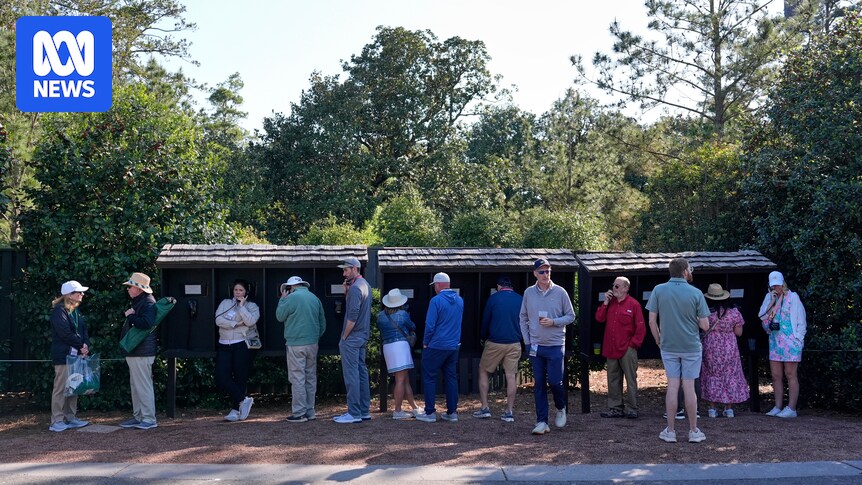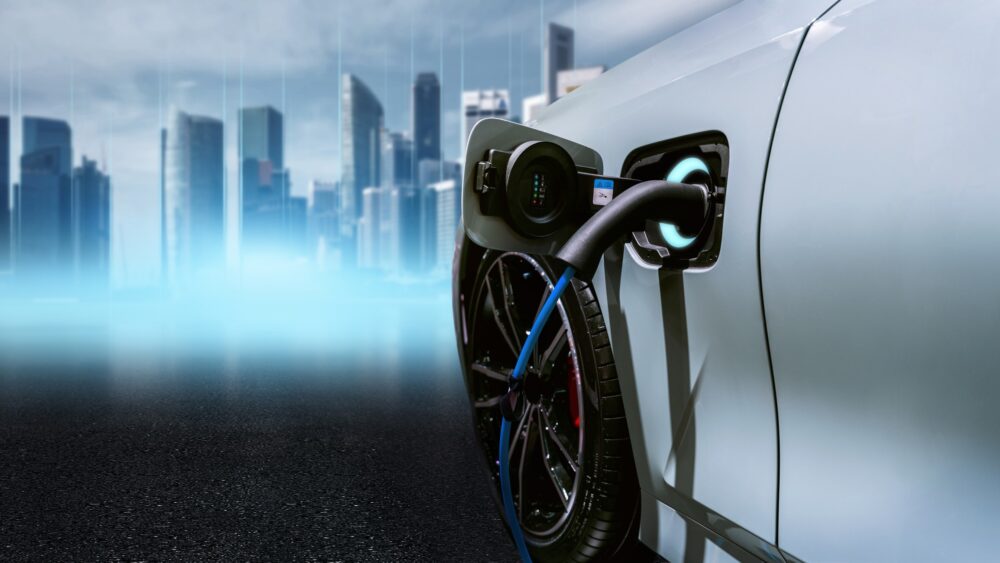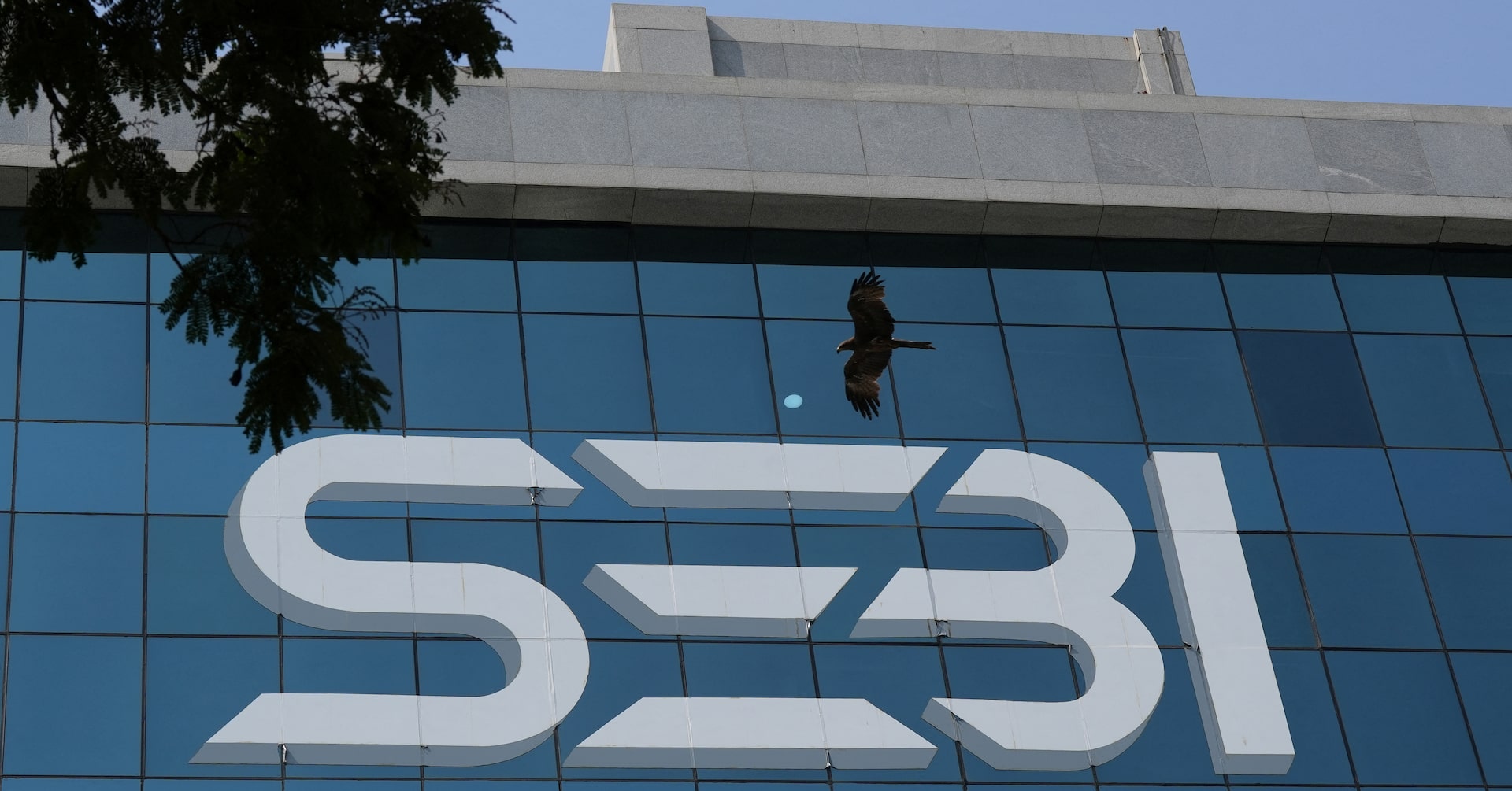Attending the Masters for the first time was a new experience for Thomas Abraham, and it wasn’t just about the golf.
The 16-year-old from Houston had the rare opportunity to use a public telephone for the first time.
“It was kind of cool,” said Abraham, who phoned a friend while attending the Masters Par 3 competition with his father, Sid.
“I’ve never used one before. I figured it out. If I had to use one of those (rotary) phones I probably would’ve had to ask my dad.”
Augusta National requires its patrons to leave their mobile phones and other electronic devices behind.
In place of those security blankets, there are several public telephone banks of those throwback devices from days gone by.
The use of the phone bank is seen as a novelty for many punters, and a necessity for others. (AP: Julia Demaree Nikhinson)
They are a foreign sight for many in the younger generation who’ve never seen a phone with an attached cord.
Abraham is not unlike most teenagers — or adults, for that matter — who are very much attached to the world through their phones.
At some point, chances are, patrons check for their phone — patting their pockets, reaching for the clip on their belts, wherever it usually is.
And when they can’t find it, well…
“It’s kind of panic mode,” Abraham said.
“We were at 18th (hole) and I went to reach in my pocket and it wasn’t there. Then I remembered it’s in the car.”
The old technology can prove to be too much for some of the younger generation. (AP: Julia Demaree Nikhinson)
He wasn’t alone.
“I’ve checked my pockets for my phone no less than 10 times today,” said Ryan O’Connor from Little Rock, Arkansas.
“I was sitting in the bleachers on the 16th green and someone dropped a water bottle and it made a loud noise and I instinctively reached for my phone. Not there.”
The line at the public phone bank can stretch up to 10 people deep at the height of the Masters. And while they provide an outlet for those looking to touch base with the world outside of Augusta National’s gates, there are some issues that come with them.
Like, remembering phone numbers.
Bill Kehoe, 50, from Raleigh, North Carolina came prepared.
As he approached the public phones, Kehoe whipped out a sheet of paper with a handful of names and numbers written on them with a black Sharpie.
He picked up the receiver on the phone, punched in the number “1” to start the call and then looked down at the paper and entered the remaining numbers to complete the free call.
“I can’t even remember my own phone number, let alone anyone else’s number,” Kehoe said.
“They’re all saved in my phone.”
One of the calls he made was to his 14-year-old son Connor, who was on a school trip to Washington DC.
Connor had asked his dad to call at a prearranged time while he was on a bus, and his classmates were shocked when his caller ID popped up as “Augusta National Golf Club.”
“You could hear all of the kids like, ‘oh, that’s so cool!,” Kehoe said.
“But then they all started asking for merchandise so I had to hang up.”
A patron uses the phone during the opening round at Augusta. (Getty Images: Richard Heathcote)
There are several reasons patrons disrupt their round of watching professional golf to make a call.
One person was calling to hear about the day’s dramatic movement in the stock market.
Another said he was checking in with work.
And several others were simply touching base with family or loved ones.
Tyler Johnson and his wife Lauren called home to Roswell, Georgia to check on their five-year-old son, who is staying with his grandparents, “just to make sure there’s no blood,” Johnson said with a laugh.
As mum and dad alternated talking to their son, they took pictures of each other talking on the odd-looking black public phone.
“I think the last time I used one of these was 1999, before Y2K, I think,” Johnson said.
While not having a phone is an inconvenience for some, others have come to relish the liberating feeling of being disconnected from the world for a little while.
Fletcher Lord texted his wife after he arrived at the course around 6am and reminded her not to expect to hear from him all day.
Shane Lowry tees off amongst the trees in the stunning setting of Augusta. (Getty Images: Simon Bruty/Augusta National)
He then set out to enjoy a few refreshments on a sunny day amid the serene backdrop of blooming azaleas and tall pines.
“Once you get over the anxiety of not having your phone, it’s a very freeing feeling because it forces you to just be here in the moment,” Lord said.
O’Connor agreed.
He phoned one of his old friends from high school just to see if he’d pick up. He did.
“He didn’t recognise the number obviously, but when he saw Augusta National pop up he said I better pick this one up,” O’Connor said.
Then it was off to enjoy the day.
“Is not having a phone a pain?” O’Connor said.
“No, I think it’s actually good for me. Those emails will be there when I get back home.”
AP


